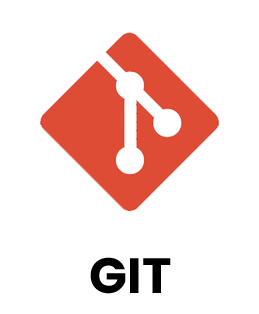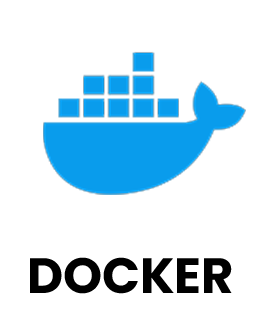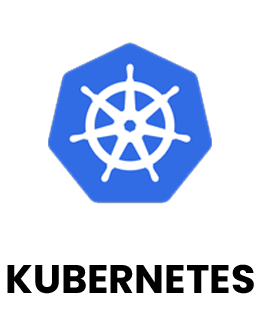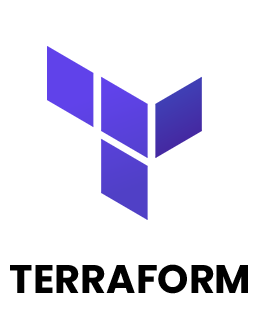ACTE DevOps is the combination of cultural philosophies, practices, and tools that increases an organization's ability to deliver applications and services at high velocity: evolving and improving products at a faster pace than organizations using traditional software development and infrastructure management processes. Enroll Now with us ACTE DevOps Classroom & Online Training Course.
Well if, you’re coming to career is the main thing in your life so that DevOps career requires learning to be a skilled communicator, perhaps most especially becoming a skilled listener. DevOps also calls for a willingness to push for positive change…. as well as something that brings conventionally disconnected components in the development, deployment, and delivery of software into a single loop. Organizations are finding that DevOps is replacing their traditional IT departments
DevOps assimilates development and operations teams to improve the collaboration process. A DevOps Engineer will work with IT developers to facilitate better coordination among operations, development, and testing functions by automating and streamlining the integration and deployment processes. The field of security is peculiar because the more you automated, the higher chances of automating problems too. So all automation being done in this area to be intrinsically controlled, and this brings enormous scope for DevOps philosophy. DevOps has a great and promising future.
Absolutely, No DevOps is easy if you have the pre-requisite skills (Linux fundamental ad Shell Scripting), our trainers will make it simple easy and intresting. Chef, Puppet, OpenStack, etc. are DevOps tools and those are includes everyday System Admin skills. ... DevOps is the cross-section of software engineering and systems administration. Moreover it is easy to learn
We are happy and proud to say that we have strong relationship with over 700+ small, mid-sized and MNCs. Many of these companies have openings for DevOps developer. Moreover, we have a very active placement cell that provides 100% placement assistance to our students. The cell also contributes by training students in mock interviews and discussions even after the course completion.
Both are Good and both are having their own Specialty as well as both has future. DevOps is a combination of software development and operations and as its name suggests, it's a melding of these two disciplines in order to emphasize communication, collaboration, and cohesion between the traditionally separate developer and IT operations teams.DevOps helps an organization deploy software more frequently, while maintaining service stability and gaining the speed necessary for more innovation.
DevOps brings a set of principles and values to promote collaborative development and deployment approach and it can be achieved by using certain tools and processes. Hence DevOps is neither easy nor difficult, it depends on how you perceive it.
For a minimum understanding of Devops for beginners, it requires only 10–15 hours. To get a medium level understanding of Devops will require a minimum of 40–60 hours. For high-level understanding, it requires more than 2 projects.
Yes, Of course you can. Just like a person without any IT experience can enter programming, System Administration, Quality Assurance, Hardware etc……..There is always an entry point to IT and DevOps is always special. And just like those other fields you will have a steep DevOps as a learning curve.so make use of it…..
Our courseware is designed to give a hands-on approach to the students in DevOps. The course is made up of theoretical classes that teach the basics of each module followed by high-intensity practical sessions reflecting the current challenges and needs of the industry that will demand the students’ time and commitment.
DevOps Is Quite intresting
Definitely, it's a good choice if you want to learn DevOps. Many big IT companies such as ADP, eBay, GE, ING, Intuit, PayPal, Splunk, Uber, JP Morgan are looking for DevOps experts…. DevOps is more than what your resume can effectively communicate, namely the so-called soft skills. And it and good to take devops in 2020
Yes, devOps is currently having a huge demand in IT sectors, with no signs of slowing down. According to the 2020 State of DevOps Report, organizations using DevOps practices could deploy code up to 30 times more frequently than their competitors. ... According to IT survey the average salary for a DevOps engineer is a juicy $100,000 per year.
Top to be a Better Agility, Effective and faster deployment of apps and software. ..DevOps- a perfect source for earning money and a faster business development cycle. ...Boost product quality. ...Lower IT staff and costs. ...Become a valuable asset for the company. and You will get the chance to work with professional developers
However, your qualifications, experience, and interest also matter. With the right talent and combination, there is a good chance that an experienced DevOps candidate can advance into senior technical or management roles in the future.
Development of Operations:
DevOps is Visualizing objective, automated metrics makes them easier to understand. That's why choosing the right DevOps metrics is key.struggle to identify the key performance indicators that will demonstrate to management why DevOps matters and how it affects business results. Not having the right metrics is just one of the many ways that DevOps initiatives.
6 proven metrics for DevOps success
1. Availability and uptime
In the book Accelerate, Jez Humble, and Gene Kim, one of the four key software delivery metrics is "time to restore service." Uptime is essentially a way to aggregate this metric over time.
My team calculates availability by taking the total time of all outages reported by our primary production monitor for each service, subtracting that from the total time, and then dividing by the total time.
Our availability dashboard calculates this on demand for any date range. Most of our services have agreed to a service-level objective (SLO) of 99.95% uptime, with a few committing to 99.85% instead.
Our general manager reviews the uptime numbers for each of our production services quarterly.
This motivates teams to:
Make sure their production monitors are accurately measuring the true end user experience.
Focus on improving the availability of services that aren't meeting their goals.
Celebrate when they meet their SLO.
2. Work in progress
The Toyota Production System of lean manufacturing taught us that limiting work in progress (batch sizes) helps teams improve overall throughput. Put another way, it's better to finish one project today than to chip away at 10 projects and finish none of them.
With our work-in-progress metric added to our dashboard, my team can simply count the number of open issues of each type (story, defect, task). When the number gets too high, it's time to stop taking on new work and focus on what has already been started. That improves our overall velocity.
3. Repository speed
Pull requests represent value waiting to be delivered to production. The repository speed score is based on the time from submission to merge of GitHub pull requests, over the last 30 days. A perfect score is given when the average time per pull request comes in at zero to two weekdays (M-F), decreasing to a score of zero at five weekdays.
Old pull requests can get lost, affecting the repository speed metric. When you're working with more than one repository, it's difficult to keep track of outstanding pull requests.
One new feature shows where all outstanding pull requests for every repository the squad owns are shown, highlighting the ones that are old, and some squads review these in their daily stand-up. By highlighting old pull requests waiting for review, we ensure that our developers focus their code review efforts where they are needed.
Some developers frequently created pull requests before they were ready to deliver to production. Some of these requests stayed open for weeks, and that drove down our repository speed scores.
These long-running pull requests were used as a discussion point with other squads to clarify information that was missing in the specs. It was also a way for developers to communicate changes that would affect other squads.
Finally, this issue also highlighted a tight coupling between squads that my team wanted to avoid. The goal is for our squads to be autonomous but also loosely coupled to each other. The idea is to keep our micro service architecture very flexible, using APIs between the different services/squads. But when more than one squad began working on the same pull request, it highlighted an issue that seemed like an architecture/code ownership problem to us. If your APIs are well designed, you should be able to make changes at will, without affecting other squads.
After discussing best practices to improve this metric, squads were driven to experiment with pair programming, development on branches, API versioning, and contributing code across repositories.
4. Deployment frequency
Squads that deploy more than once per week can fix outages in production faster because they have the automation in place to deploy changes quickly and easily. They're also delivering value to customers more frequently.
Finally, they're more likely to fix newly reported critical security vulnerabilities within a few days because they don't have to wait for the next scheduled deployment window or implement an "emergency change" procedure.
Our deployment frequency score is based on the number of successful deployments over the last 30 days, with color zero to one deployments red, two to three yellow, and four or more green.
Initially my team received pushback from teams that deliver code to production only every couple of weeks or, in some cases, only once per month. Deployment frequency is a key metric, and we were able to use the research from Accelerate to back up the importance of frequent deployments.
Promoting more frequent deployments
To further encourage frequent deployments, teams were put on a weekly sprint cadence. And early on, we also had weekly playbacks. It quickly became clear which teams were delivering value every week and which were not.
Eventually, as the organization grew, my team settled into a pattern of biweekly playbacks so they could fit half of the teams each week into a one-hour session.
All of this led to conversations about how these teams might adopt continuous delivery. In some cases, we've been able to sit with a team and get its CI/CD pipeline set up within a few days.
A red deployment frequency tile also shows us where the team needs to pull down the latest code and check for security vulnerabilities, and hopefully automate that process as well.
5. Deployment stability
Deployment stability is the percentage of time when the most recent build for a given repository was successful. On our scale, 0% to 50% is red, 50% to 90% is yellow, and 90% or higher is green. A developer on our team invented this metric after our developers complained that they were spending too much of their time fixing builds.
Broken builds can be a good thing, when excellent test automation has stopped a poor-quality change from being delivered to production. Not all broken builds are due to code errors; sometimes there's an infrastructure problem that needs to be fixed. Broken builds become a problem when they persist for a long time and start to interfere with developer productivity.
By visualizing broken builds over time on the dashboard, it's obvious where squads need to spend some time cleaning up technical debt and fixing the deployment process.
6. SonarQube metrics
Most of our repositories have integrated SonarQube reporting into their CI/CD processes, pulling the overall scores for security, code quality, and test coverage into our dashboard. They're displayed at a repository level, squad level, and cross-platform level.
Making these scores visible helps teams ask for more time to improve their scores. My team has seen, for example, that one team improved its SonarQube security score from a D to an A in two days just by implementing the small changes SonarQube recommended.
My team is frequently challenged to defend our goal of 100% unit test coverage. Some teams believe they should get an "A" on the dashboard for a lower test coverage score, like 70%. My team stuck to our convictions here, and if a squad is happy with 70% coverage, then they can accept a lower grade.
Others point out that it's possible for teams to game the system by telling the code coverage checker to ignore large swathes of code. In reality, there has not been widespread abuse of code coverage "ignore" flags. Our developers and code reviewers should have the integrity to be honest about their code coverage.








































